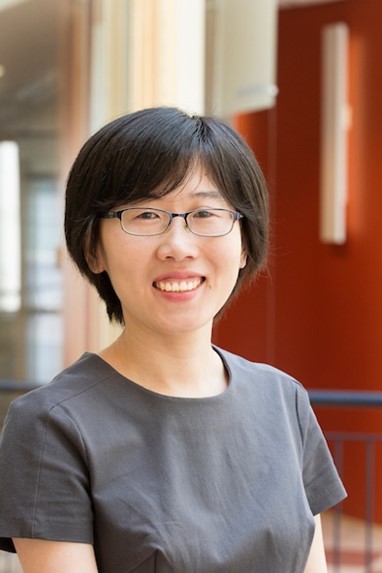MERL’s Virtual Open House 2023
November 15, 2023
Join us for MERL's virtual open house 2023 on November 15th. Live sessions will be held from 1:00-5:30pm EST, including an overview of recent activities by our research groups, a featured guest speaker and live interaction with our research staff through the Gather platform. Registered attendees will be able to browse our virtual booths at their convenience and connect with our research staff on engagement opportunities, including internship/post-doc openings as well as visiting faculty positions.
Details
- Date: Wednesday, November 15, 2023
- Time: 1:00 - 5:30 PM EST
Live Session Schedule
| 1:00 - 1:25 EST |
Auditorium A Welcome / Opening Remarks Anthony Vetro / Elizabeth Phillips |
|
| Group Introduction & Opportunities | ||
| 1:30 - 1:50 EST |
Auditorium A Speech & Audio Jonathan Le Roux |
Auditorium B Computational Sensing Petros T. Boufounos |
| 1:50 - 2:10 EST |
Auditorium A Computer Vision Tim K. Marks |
Auditorium B Connectivity and Information Processing Kieran Parsons |
| 2:10 - 2:30 EST |
Auditorium A Controls for Autonomy Stefano Di Cairano |
Auditorium B Electric Systems Automation Yebin Wang |
| 2:30 - 2:50 EST |
Auditorium A Optimization & Intelligent Robotics Arvind Raghunathan |
Auditorium B Multi-Physical Systems Phil Orlik / Chris R. Laughman |
| 3:00 - 3:40 EST |
Auditorium A Keynote "Sample Complexity of Q-learning: from Single-agent to Federated Learning" Yuejie Chi, Carnegie Mellon University |
|
| 3:45 - 5:30 EST | Open Interaction on Gather Platform | |
Virtual Exhibit Booths
Attendees are invited to visit our virtual booths on Gather platform to learn more about MERL's research activities and internship opportunities. These virtual spaces will provide:
- Materials that provide a more in-depth view of our latest research results
- Links to relevant internship, post-doc, and full-time opportunities
- An opportunity to interact live with MERL researchers
The event will feature 20 virtual booths in the following research areas:
- Speech and Audio Processing
- Multimodal Scene-Aware Interaction Using Natural Language
- Multimodal AI and LLMs
- 3D Computer Vision
- Generative AI in Computer Vision
- Visual Analysis
- Robotic Manipulation
- Human Robot Interaction
- Optimization & Applications
- Robust and Distributed Machine Learning
- IoT Communications
- High-dimensional Dynamical Systems
- Computational Sensing
- Modeling and Model-based Design
- Predictive Maintenance for Electric Systems
- Motion and Drive Control
- Model-based Design and Control for Multiphysical Systems
- Machine Learning and Estimation for Digital Twins
- Autonomous vehicles and mobile robots
- Autonomy for satellites, spacecrafts and drones
Featured Guest Speaker
Prof. Yuejie Chi, Carnegie Mellon UniversitySample Complexity of Q-learning: from Single-agent to Federated Learning
Abstract: Q-learning, which seeks to learn the optimal Q-function of a Markov decision process (MDP) in a model-free fashion, lies at the heart of reinforcement learning practices. However, theoretical understandings on its non-asymptotic sample complexity remain unsatisfactory, despite significant recent efforts. In this talk, we first show a tight sample complexity bound of Q-learning in the single-agent setting, together with a matching lower bound to establish its minimax sub-optimality. We then show how federated versions of Q-learning allow collaborative learning using data collected by multiple agents without central sharing, where an importance averaging scheme is introduced to unveil the blessing of heterogeneity.

Dr. Yuejie Chi is the Sense of Wonder Group Endowed Professor of Electrical and Computer Engineering in AI Systems at Carnegie Mellon University, with courtesy appointments in the Machine Learning department and CyLab. She received her Ph.D. and M.A. from Princeton University, and B. Eng. (Hon.) from Tsinghua University, all in Electrical Engineering. Her research interests lie in the theoretical and algorithmic foundations of data science, signal processing, machine learning and inverse problems, with applications in sensing, imaging, decision making, and societal systems, broadly defined. Among others, Dr. Chi received the Presidential Early Career Award for Scientists and Engineers (PECASE) and the inaugural IEEE Signal Processing Society Early Career Technical Achievement Award for contributions to high-dimensional structured signal processing. She is an IEEE Fellow (Class of 2023) for contributions to statistical signal processing with low-dimensional structures.
Contact Us
If you are experiencing any issues with registration or accessing the event site, or would like further information about this event, please contact us at
.